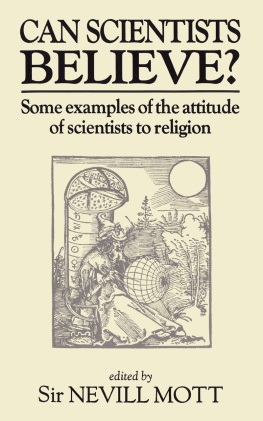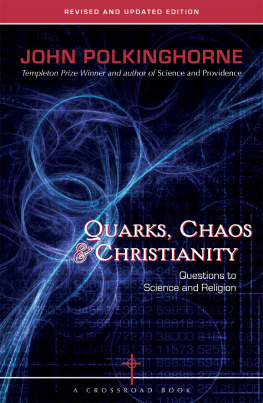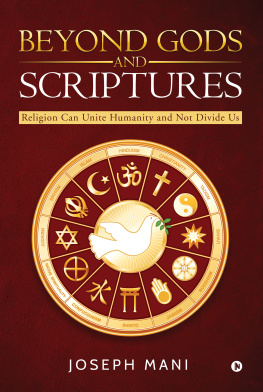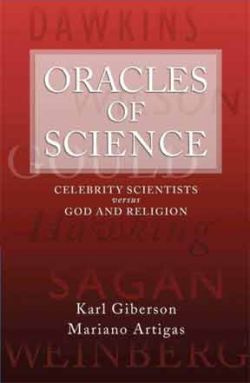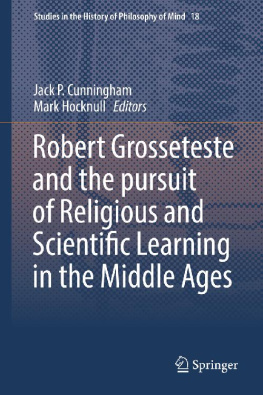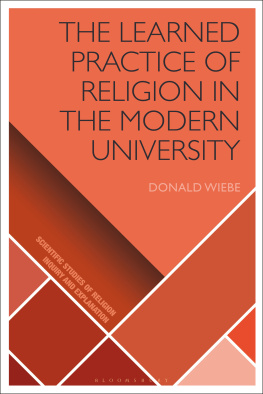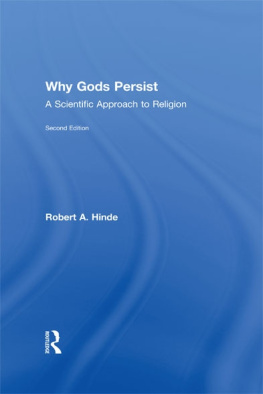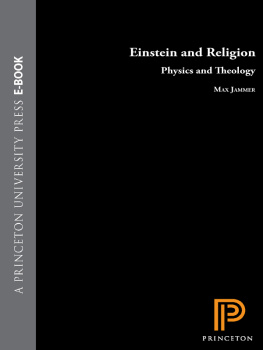CAN SCIENTISTS
BELIEVE?
Some examples of the attitude
of scientists to religion
CAN SCIENTISTS
BELIEVE?
Some examples of the attitude
of scientists to religion
edited by
Sir NEVILL MOTT, F.R.S.
formerly Cavendish Professor of Physics, Cambridge,
Nobel Prize for Physics, 1977
First published in 1991 by James and James, 35-37 William Road, London, NW1 3ER
Moved to print on demand 2001
All rights reserved. No part of this publication may be reproduced, stored in a retrieval system, or transmitted in any form or by any means electronic, mechanical, photocopying or otherwise without the prior permission of the publisher.
Copyright in the compilation Sir Nevill Mott 1991
Copyright Sir Nevill Mott, John Habgood, Christopher Moss, D. J. Bartholomew, P. E. Hodgson, Sir John Eccles, G. Ludwig, Richard Bube, V. Ya Frenkel, Cyril Domb, Mark Howson, Juana Vivo Acrivos, John J. McGlone, Semiramis Dionysiou-Kouimtzi, C. W. Francis Everitt 1991.
British Library Cataloguing in Publication Data
Can scientists believe?
1. Religion and science 1946-
1. Mott, N. F. (Nevill Francis) 1905-
ISBN 0-907383-54-8
ISBN 9-7811-358-82-21-1(epub)
The cover shows The astronomer mapping the heavens, a wood cutfrom the tittle page ofMessahalh, De Scientia Mot us Orbis, printed by Weissenburger in 1504
Sir Nevill Mott
I was not brought up in any religious faith. My parents, educated as physicists, and from Church of England families, were married in a Unitarian Church, but later lost interest in organized religion and during my childhood I was seldom if ever taken to a service, though I attended the compulsory school chapel at my boarding school. A physicist myself, immersed in research in this absorbing subject, I had little interest in religion until the age of about fifty. Then, as head of the Cavendish Laboratory at Cambridge, I was asked by the Vicar of the University Church, Mervyn Stockwood, to join other leading scientists in giving talks in his church on science and religion. This led me to read some theology and awakened my interest; the talk I gave is published in my autobiography.
My conclusion at that time was that truth, as we understand it in science, and truth in religion, are not the same thing. Since then, I have often attended services in Anglican churches or my college chapel, and now living in retirement in a Bedfordshire village, Aspley Guise, my wife and I are fairly regular churchgoers. Always, when I hear the sonorous words of the creed descended into Hell, rose again from the dead, I ask myself what kind of truth they state and what meaning I, as a physicist, can give to them. How much can I accept of Christian doctrine, as defined for instance by David Winter, who was formerly head of religious broadcasting at the British Broadcasting Corporation? He says, first, is the belief that God exists. He is holy, just and merciful. We have disobeyed his laws and are suffering the inevitable consequences of that disobedience now and will suffer them into eternity if we remain as we are. God has sent his son, Jesus, to be the Saviour of the world. He died on the cross for our sins and was raised again to life. Now he offers us forgiveness and new life if we put our trust in him: we shall have salvation from the consequences of our rebellion.
When my wife and I moved to the village where we now live, the present vicar, with whom I discussed my beliefs, told me that some who came to his church wanted to go on doing so, but were worried that they could not accept literally all they heard in the services there. It could be a help and an assurance to them, he said, if I as a scientist would give some sermons, showing how it was possible to worship and yet interpret or even reject some of what is said. Born of the Virgin Mary might be an example. I have given addresses on this and other things, both in our church and in Cambridge colleges. I know it is a relief to some of our parishioners here that a scientist believes that it is possible and may even be right to worship in church without accepting everything in the service.
This is why I have put together this book. Now is a period in which, not only in the Anglican Church and not only among Christians, belief in the literal truth of religious writings is gaining strength and in religion liberalism is becoming a dirty word. At the same time there are many people who are liberals by temperament, and who are attracted to the churches by their ethical teaching, and have some kind of belief in God, but who do not feel that they can accept literally all of a faith such as that set out by Mr Winter. I am far from criticizing those who believe the latter; each human being must find the beliefs which help him most in his approach to God. I have, however, been asked by some people of the former kind how do other scientists who go to church, chapel, or synagogue cope with these problems? I have been very anxious to find out how my fellow scientists who attend places of worship cope with them, and am grateful for their willingness to co-operate in this book, both those who have written previously on this subject and those for whom it is a new experience. As Voltaire wrote Faith consists in believing when it is beyond the power of reason to believe, and I did not find or expect that their science would lead all my authors to the same conclusions. But it does appear that faith and science can co-exist.
I am most grateful to all my authors. Two are women, Acrivos and Kouimtzi. I wish I could have found more.
Notes
. A Life in Science (Taylor and Francis, London, 1986).
. An extract from his book Battered Bride? (Monarch Publications, September 1988). The statement is on p. 186.
. Cf. Clifford Longley, The Times, 8 Oct. 1988 in an article entided Outreach or out of reach. According to him, both in the Roman and Protestant churches there are many such people. On the other hand, on 19 Aug. 1989, in an article entided A tolerant church, worthy of a generous obituary, he says goodbye to a church in which they can feel at home. I intensely hope he is wrong.
CHRISTIANITY
WITHOUT MIRACLES?
Sir Nevill Mott
Many scientists, and many other people in Western Europe, feel little need for religious belief. The author of this article is among those who do, but feel repelled by the element of the miraculous which forms part of Christian doctrine. There are others, I know, who are attracted to one form of religion or another, but are worried by the same problem; would God, or can God, overturn his natural laws to mark a moment of supreme importance in the revelation of God to man? I have been asked how io scientists cope with the problem, either in the Christian churches or in others? I have edited this book in an attempt to find out. This essay, my contribution to the volume, tries to show that it is possible, within the Anglican Church, to believe in a God who is active in the world, but who does not perform the kind of miracle described in the Gospels. By a miracle I mean an act of God in which natural law is broken, not just a happy and surprising event which may appear as an answer to prayer, or indeed as a miracle of healing.
In setting out a point of view, an attempt to present a form of Christianity without miracles, I must first ask why a scientist should seek religion at all. I can only speak from personal experience. I write as a man who was not brought up in the Christian or any other faith, and, though I always had a vague belief in God, my interest in doctrine started at the age of fifty, when as a Cambridge Professor of Physics, I was asked by Bishop Mervyn Stockwood, then Vicar of the University Church, to give one of a series of lectures on science and religion. For this I did a good deal of reading. I came to the conclusion that the word truth has many meanings. There is scientific truth, always provisional, never susceptible of proof (according to Karl Popper) but only to falsification, but none the less accepted from Washington to Moscow. There is ordinary everyday truth, as when we say that there is a university in Cambridge or that Prince Charles is the son of Queen Elizabeth. And then there is religious truth, which seems to me quite different though I think that many believers . But I do not think we can hope or expect to find even within a single church congregation, any universal belief. Statements such as God exists or Jesus is the Son of God, even if we all accept the words, must mean a different thing to each one of us, if we think about them at all. Religious uniformity, I think, is impossible for modern educated people, unless they close their minds to the meaning of words as perhaps many do, not only in Christianity.

